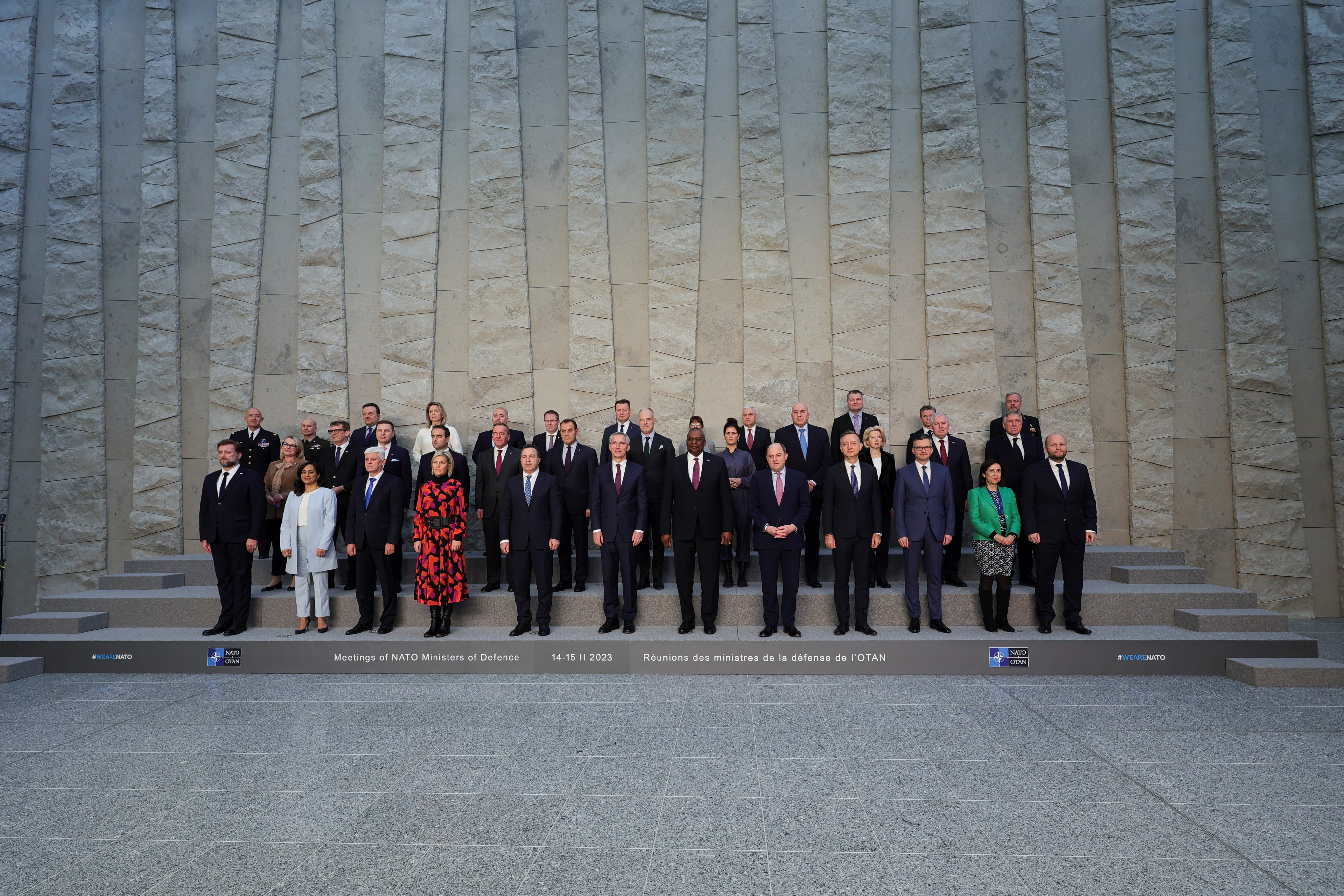NATO decisions following the defense ministers plenary meeting
NATO chief Stoltenberg said the alliance should cooperate closely with the defense industry to boost ammunition production.
-

NATO Defense ministers pose for a group photo at the alliance headquarters in Brussels, Wednesday, Feb. 15, 2023 (AP Photo/Olivier Matthys)
After the NATO defense ministers' plenary meeting in Brussels, the NATO Secretary General announced the agreed-upon decisions highlighting a set of provisional policies and plans to be implemented.
It was agreed that NATO should cooperate closely with the defense industry to boost ammunition production.
"Allies agree on the need to work hand in hand with the defense industry to rump up our industrial capacity, we are ready and we are reviewing NATO capability targets for ammunition stockpiles," Stoltenberg told reporters after the NATO defense ministers meeting in Brussels.
Read more: Ukraine's demands for shells surpasses NATO production capacity: Chief
Additionally, Stoltenberg announced the establishment of a coordination body for the defense of vital NATO infrastructure underwater.
"Today ministers also addressed the security of undersea infrastructure, the sabotage of the Nord Stream pipelines has reminded us of the vulnerabilities we face, ministers tasked the NATO military authorities to provide advice on what more we should do including better coordination and cooperation with the private sector," Stoltenberg said, following the meeting of NATO defense ministers in Brussels.
Read more: Sweden refuses to comment on findings about Nord Stream
On the topic of Sweden's accession to NATO, he urged Turkey to ratify Sweden and Finland's ascension to the alliance.
"I urged Turkey to ratify both Finland and Sweden [accession protocols] together already last Fall, that’s my position and that position has not changed... I have urged them to ratify both at the same time,"
Read more: Sweden took no steps to fulfill obligations on NATO accession: Ankara
He also announced an anticipated visit to Turkey to discuss this issue specifically with Turkish decision-makers. "I will also actually travel to Turkey tomorrow [February 16] and that [ratification process] will be certainly addressed," NATO Secretary General added.
In addition to hastening the ascension of new members to the alliance, Stoltenberg voiced NATO's interest in increasing support to non-member partners who are in close proximity to Russia like Georgia and Moldova.
"Ministers also discussed our commitment to other partners at risk, including Bosnia and Herzegovina, Georgia, and Moldova, and we agreed to step up tailored support to enhance their defense capabilities,"
Read more: Moldovan socialists accuse President of authoritarianism

 3 Min Read
3 Min Read








